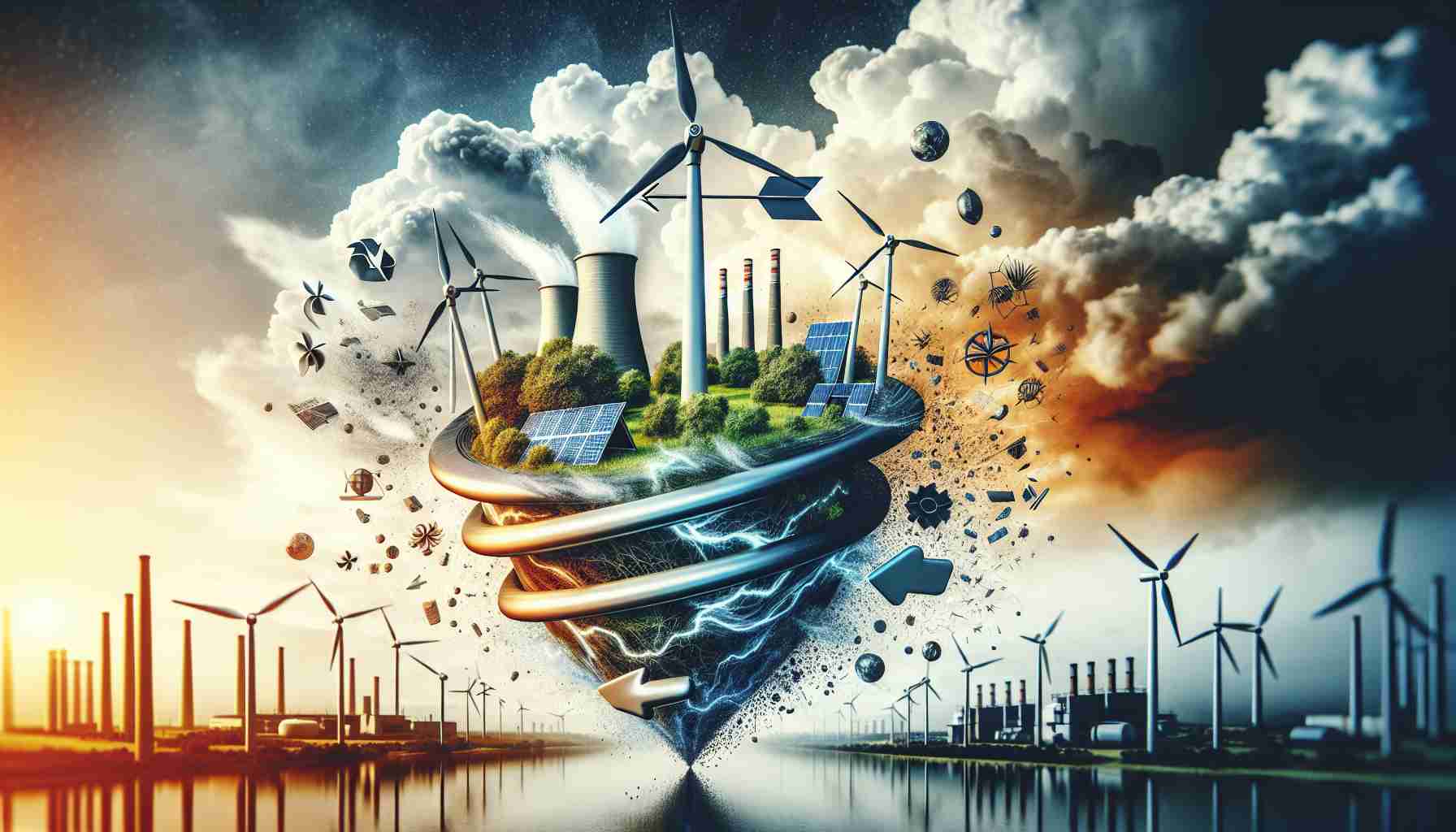Germany’s ambitious initiative to establish 10.5 GW of hydrogen-ready gas-fired power capacity is hanging in the balance. An influential member of the leading Christian Union (CDU/CSU) has indicated that their endorsement is not guaranteed, raising concerns about the future of this critical energy plan.
According to a parliamentary energy policy expert from CDU/CSU, any support for this project hinges on a pressing need for action and a unified agreement among stakeholders. As Germany aimed to launch tenders for these hydrogen-ready gas plants soon, this effort was part of a broader strategy to transition to sustainable energy sources, lessening reliance on fossil fuels as the nation shifts towards solar and wind energy.
Recent political upheaval, particularly the collapse of the ruling coalition comprised of Social Democrats, Greens, and Free Democrats, has complicated matters. Fresh elections are anticipated in the early part of next year, and the CDU’s position has hinted at a potential overhaul of current energy policies.
Amid these discussions, the party has expressed skepticism towards hydrogen-ready plants, advocating instead for the development of traditional gas-fired power stations with the option for future retrofitting using carbon capture and storage (CCS) technology. The largest utility companies in the country, including RWE and Eon, have aligned with this perspective, favoring a more pragmatic and economically driven approach to energy production.
The government’s current strategy emphasized achieving carbon neutrality by 2045, highlighting the urgency and importance of navigating this turbulent political landscape.
Exploring Hydrogen Energy: Tips, Life Hacks, and Interesting Facts
As Germany maneuvers through the complexities of energy policy reform, the focus on hydrogen energy presents unique opportunities and considerations for both policymakers and everyday consumers. Here are some helpful tips, life hacks, and intriguing facts regarding hydrogen energy that may benefit anyone interested in this evolving field.
1. Understand the Basics of Hydrogen Energy
Hydrogen is the most abundant element in the universe and has the potential to be a clean energy carrier. It can be produced from various sources, including water and natural gas. When burned or used in fuel cells, hydrogen emits only water vapor, making it an attractive alternative to fossil fuels.
2. Stay Informed About Local Hydrogen Initiatives
As initiatives like Germany’s hydrogen-ready gas-fired power capacity evolve, staying updated on local energy projects is essential. Engage with local energy providers or community boards to understand how these energy sources might affect your community and utility options.
3. Advocate for Sustainable Practices
Support organizations and policies that promote sustainable energy practices. Engaging in community discussions can influence local decisions regarding energy production and usage. For instance, consider advocating for projects that prioritize hydrogen production from renewable resources like wind and solar.
4. Explore DIY Hydrogen Initiatives
For the tech-savvy individual, small-scale hydrogen production can be a fun and educational project. There are DIY kits available for producing hydrogen through electrolysis, where you split water into hydrogen and oxygen using electricity. This can be a valuable learning experience about how hydrogen can be sourced sustainably.
5. Experiment with Hydrogen Fuel Cells
Hydrogen fuel cells are becoming more accessible for personal and commercial use. Explore options for integrating fuel cells into gadgetry or vehicles. Alternatively, research local makerspaces or labs that may offer workshops on building and using fuel cells.
6. Financial Incentives and Grants
Keep an eye out for government incentives or grants that promote the use of hydrogen and renewables. These can come in the form of tax rebates for installing hydrogen-based technologies in homes or businesses, making your transition to green energy more affordable.
7. Join Renewable Energy Groups
Joining or following groups that focus on renewable energy initiatives can provide valuable insights and collaboration opportunities. These networks often share resources, updates on policy changes, and community projects focused on sustainable energy.
Interesting Fact:
Did you know that hydrogen can be produced using electricity from renewable sources in a process called “green hydrogen”? This method allows for hydrogen to be generated without emitting carbon dioxide, making it a vital part of the transition to a carbon-neutral society.
Further Exploring the Future of Energy
As the debate around hydrogen-ready plants continues amidst political changes in Germany, understanding these aspects of hydrogen energy can empower you as a consumer and advocate for sustainable practices. Explore more about this topic and related energy discussions at Energy.gov.
By staying informed and engaged in the dialogue surrounding energy policies, we can all contribute to shaping a sustainable future powered by innovative solutions like hydrogen.

